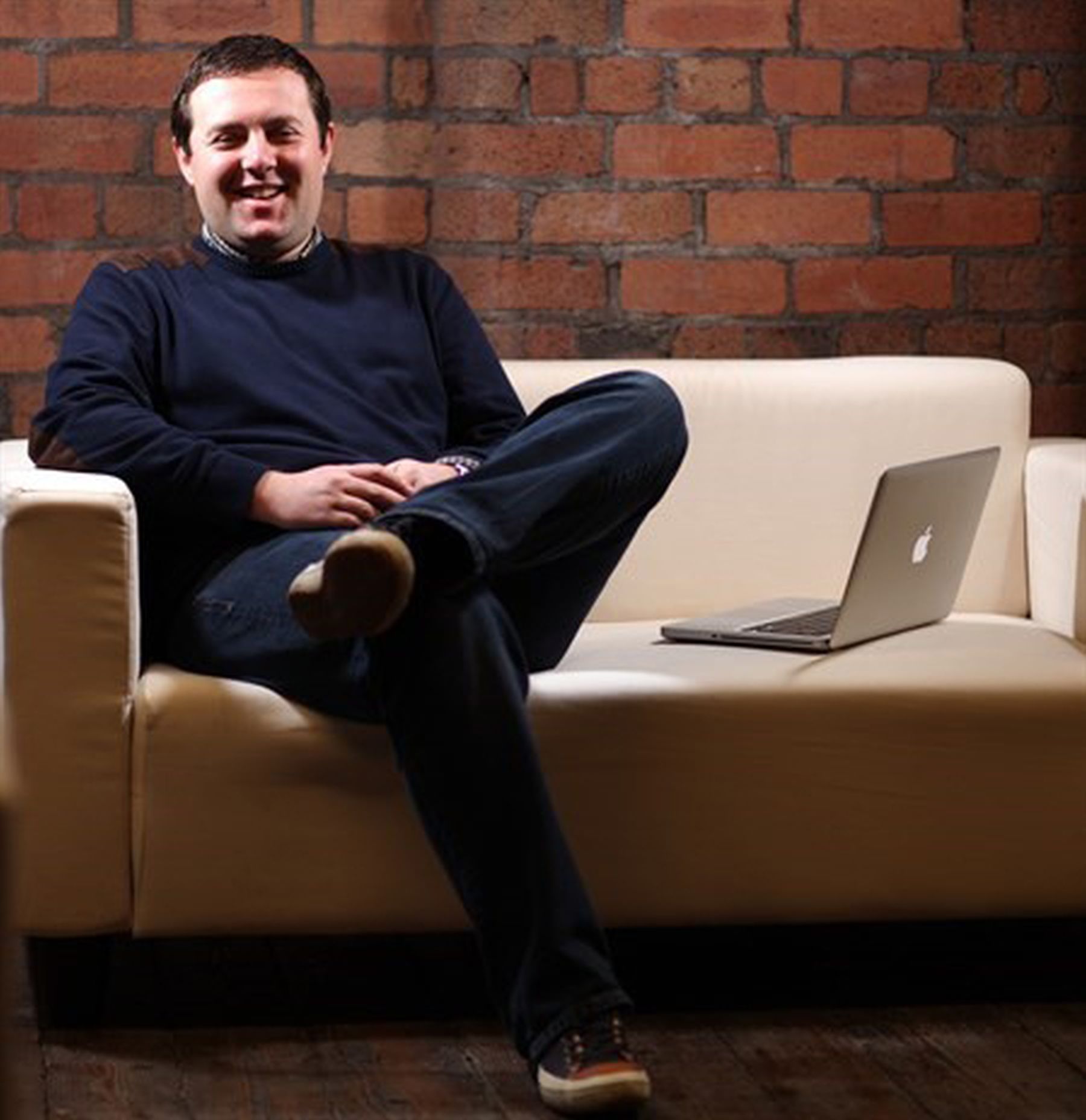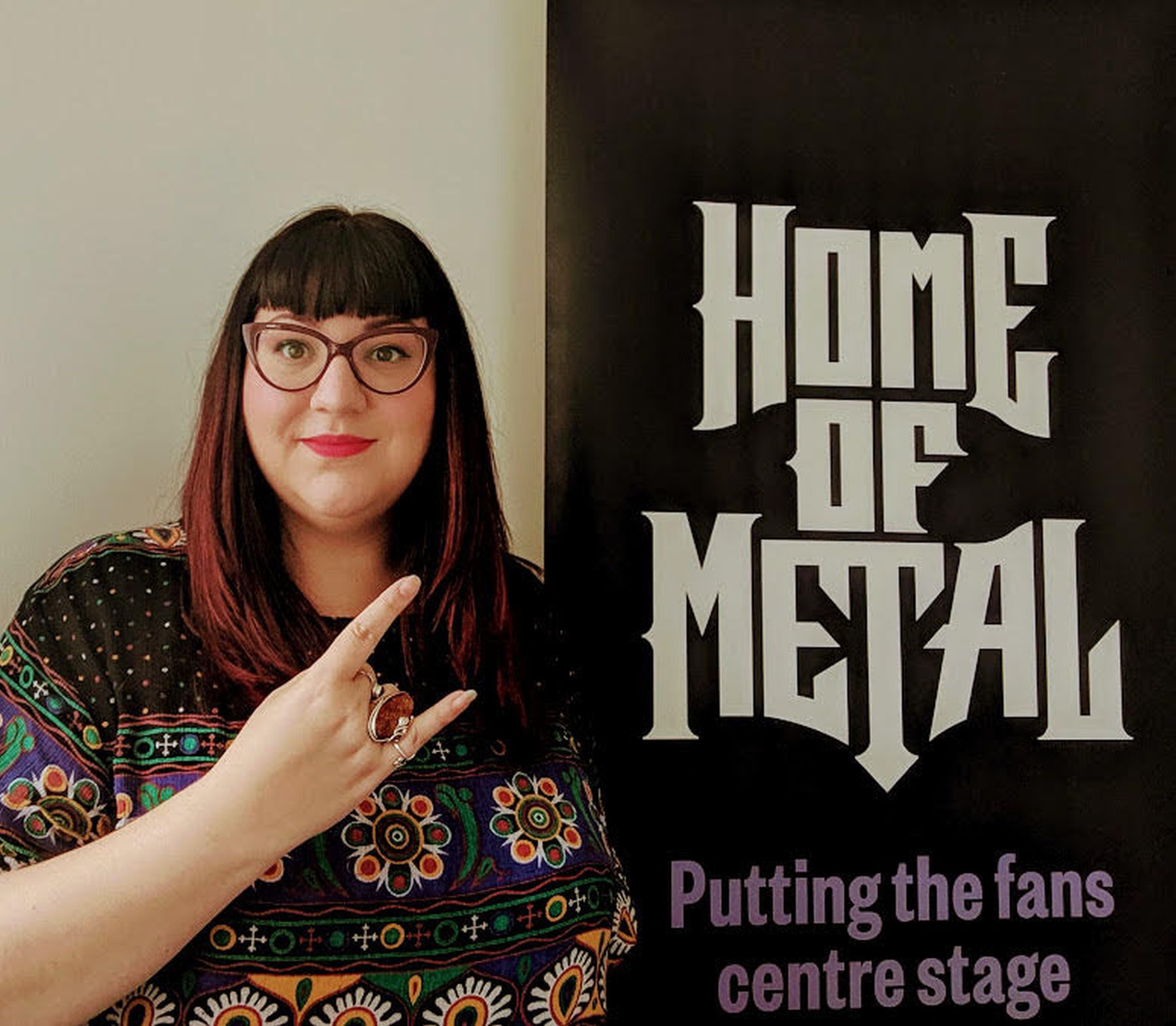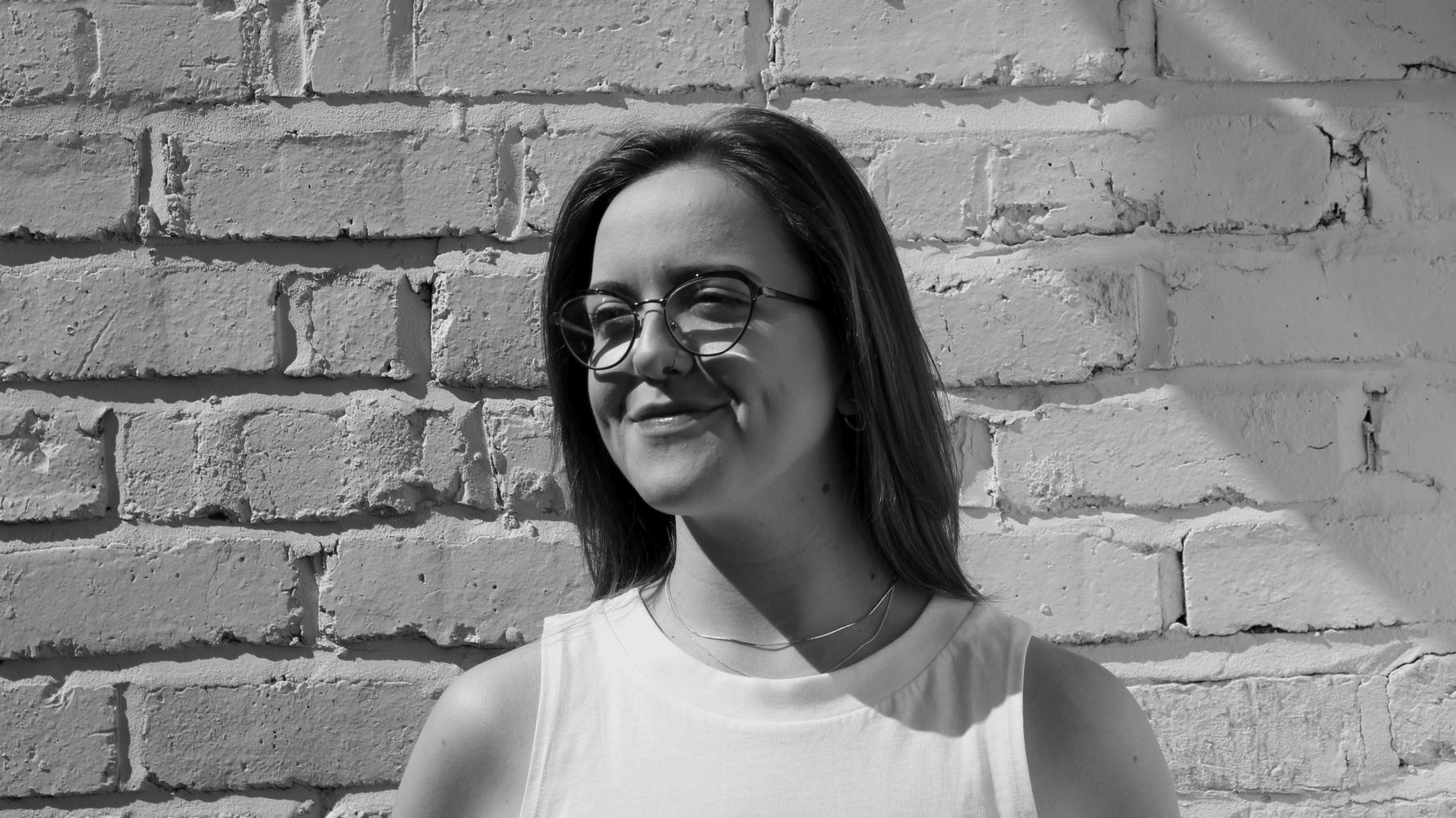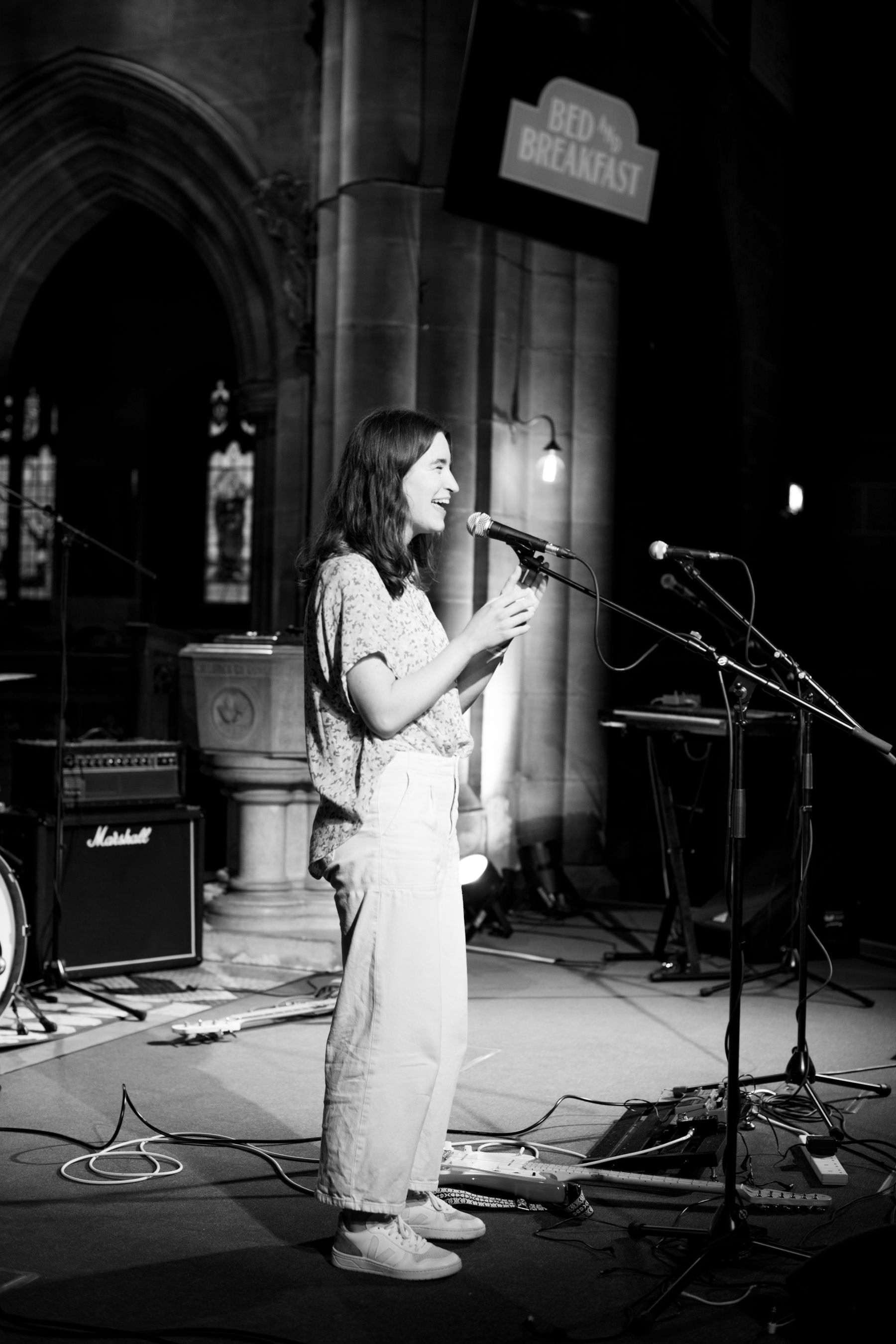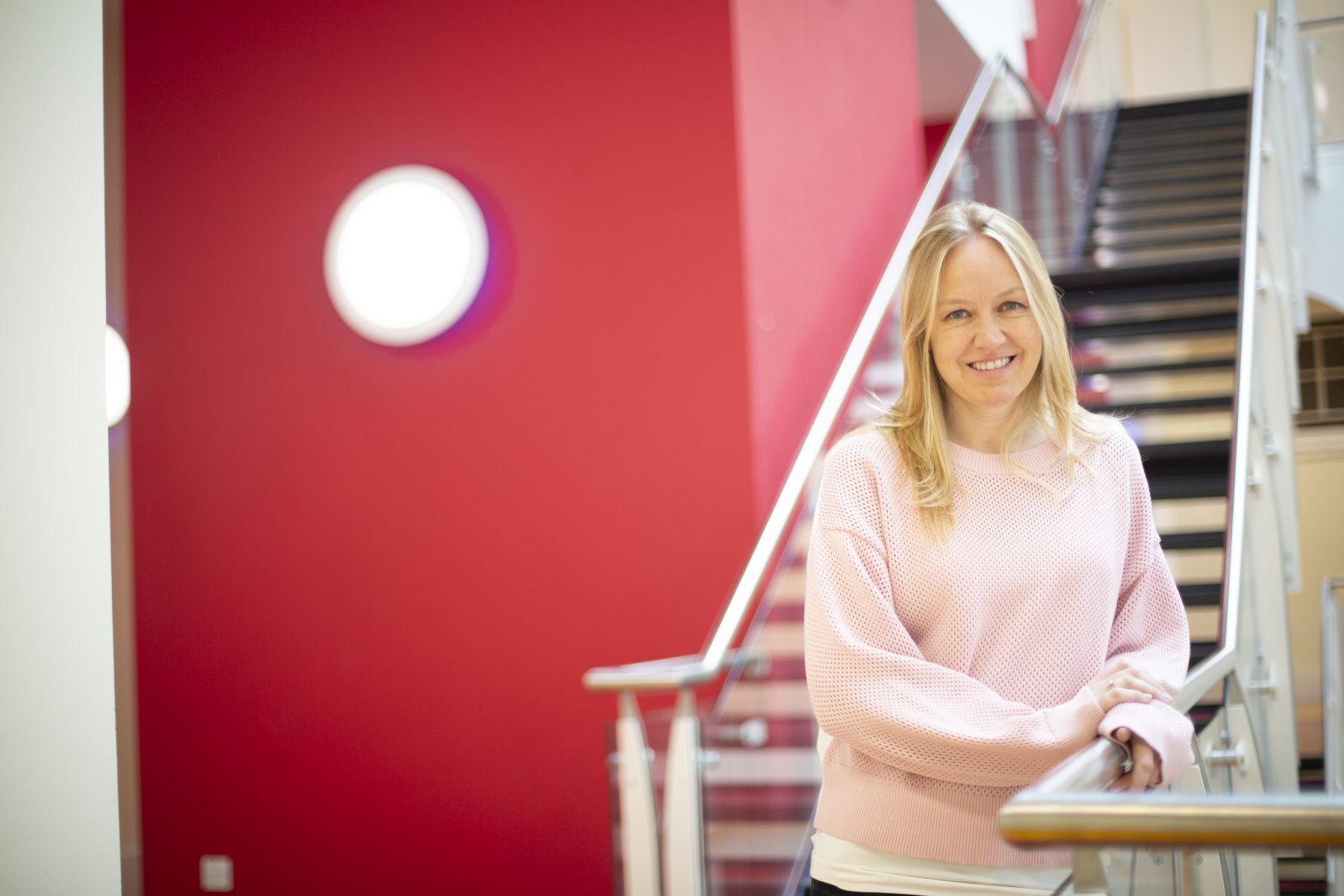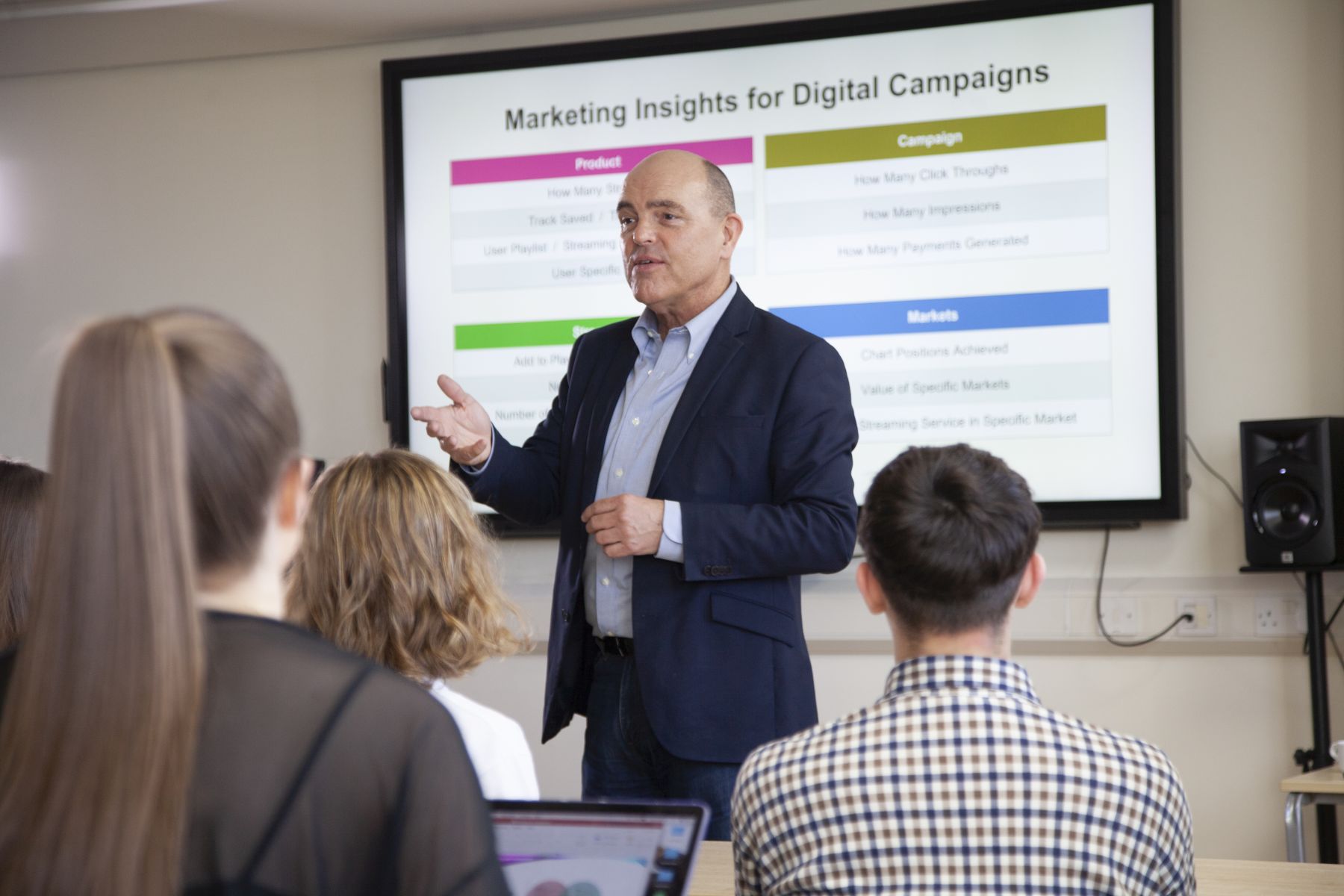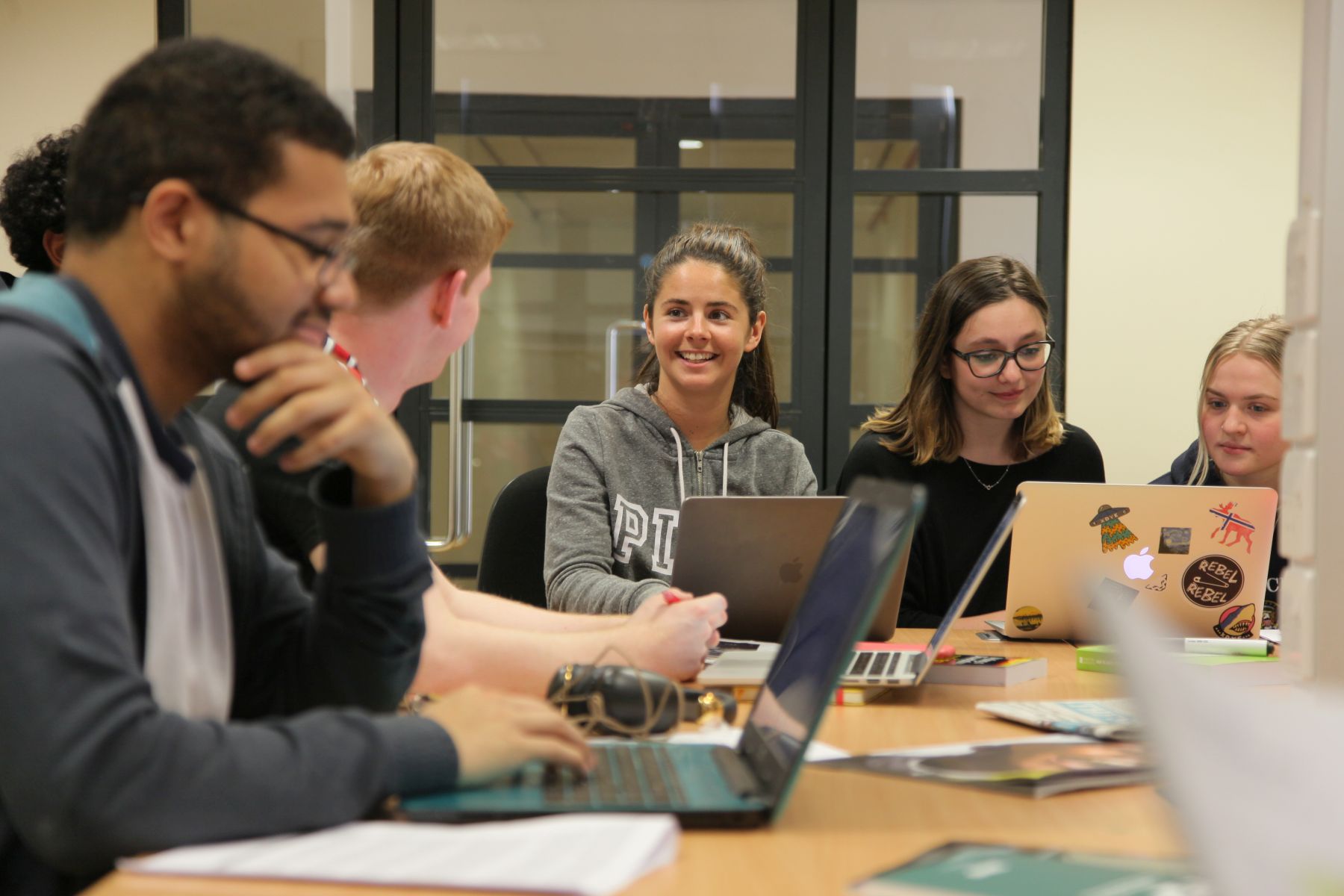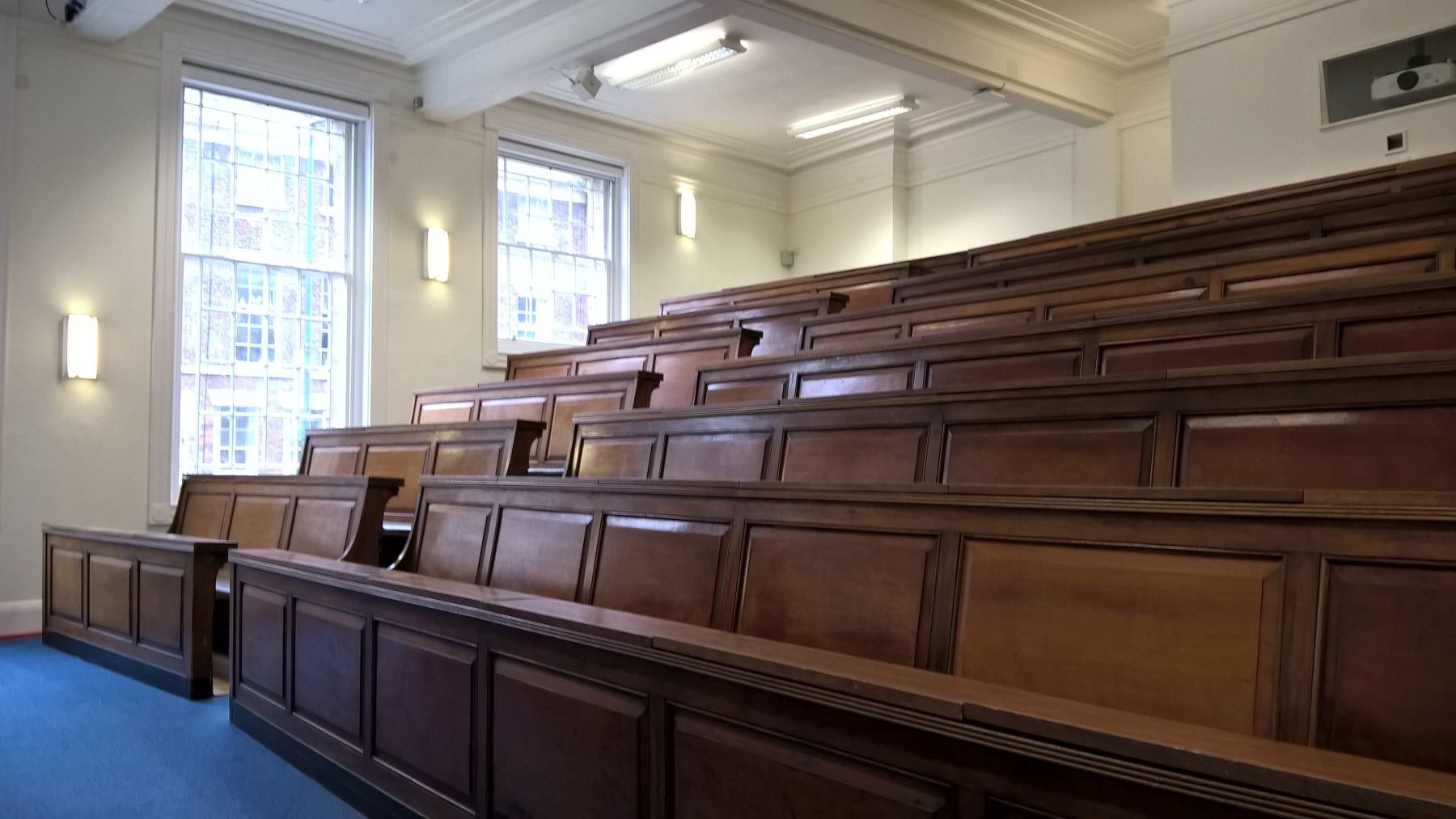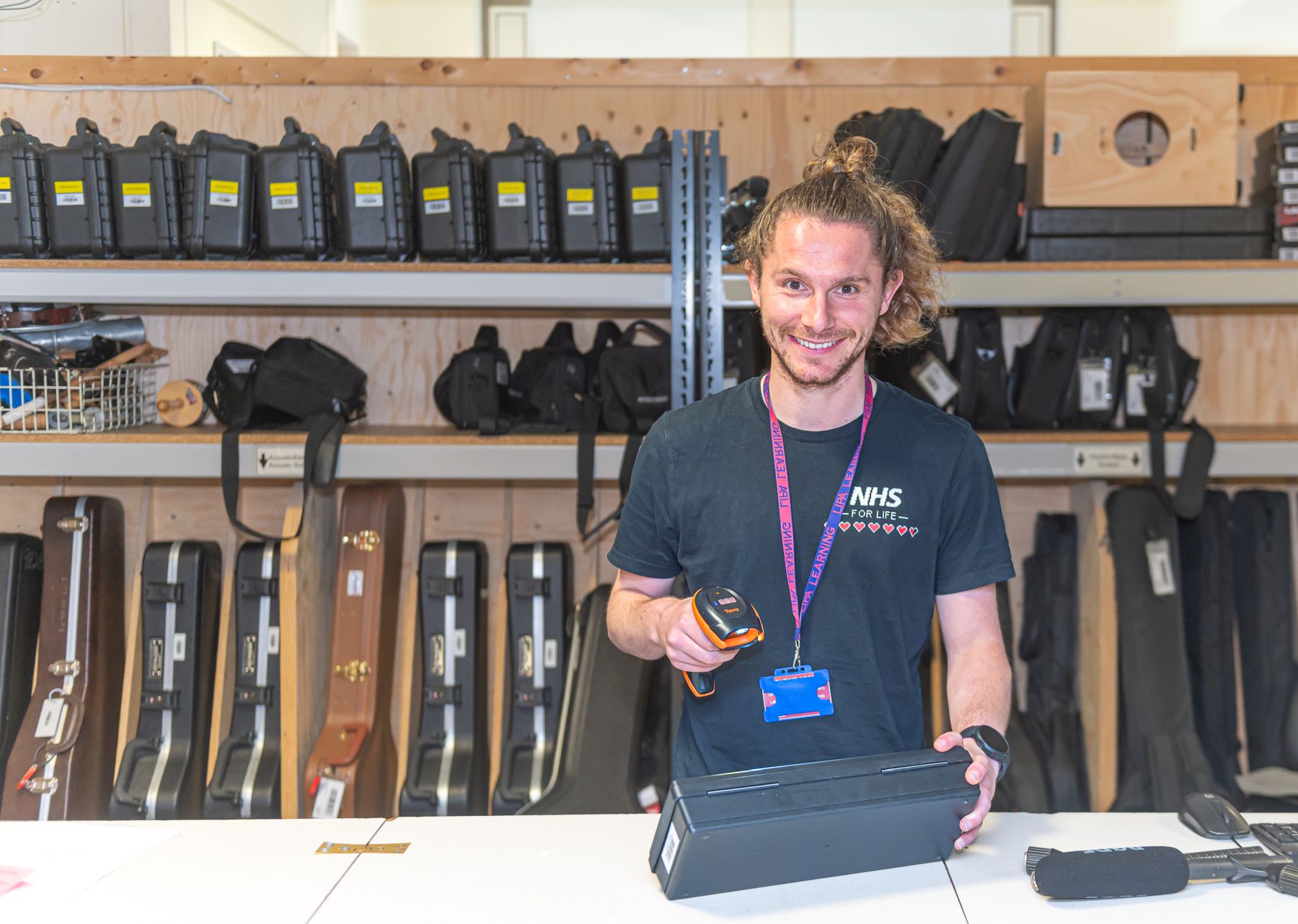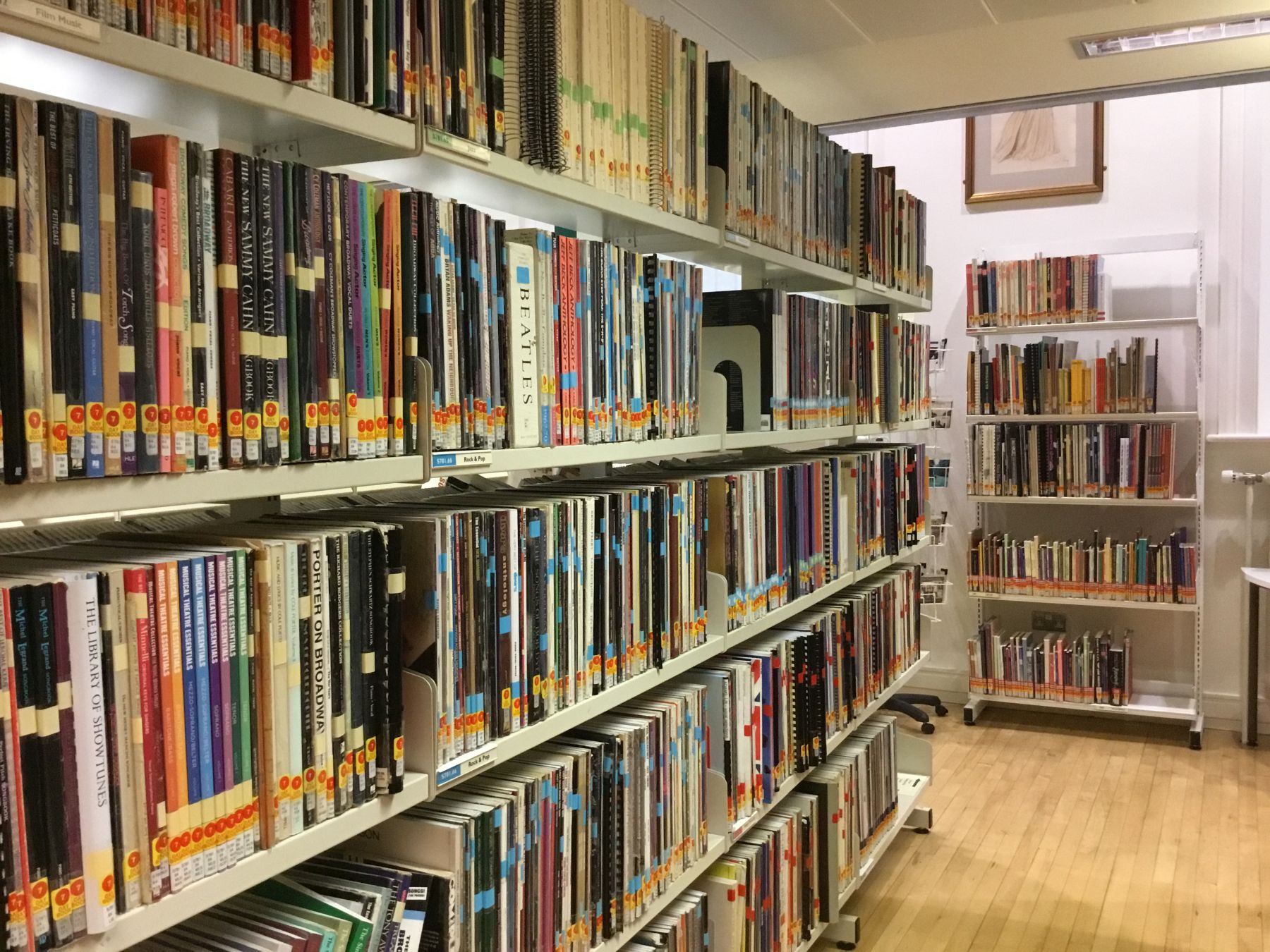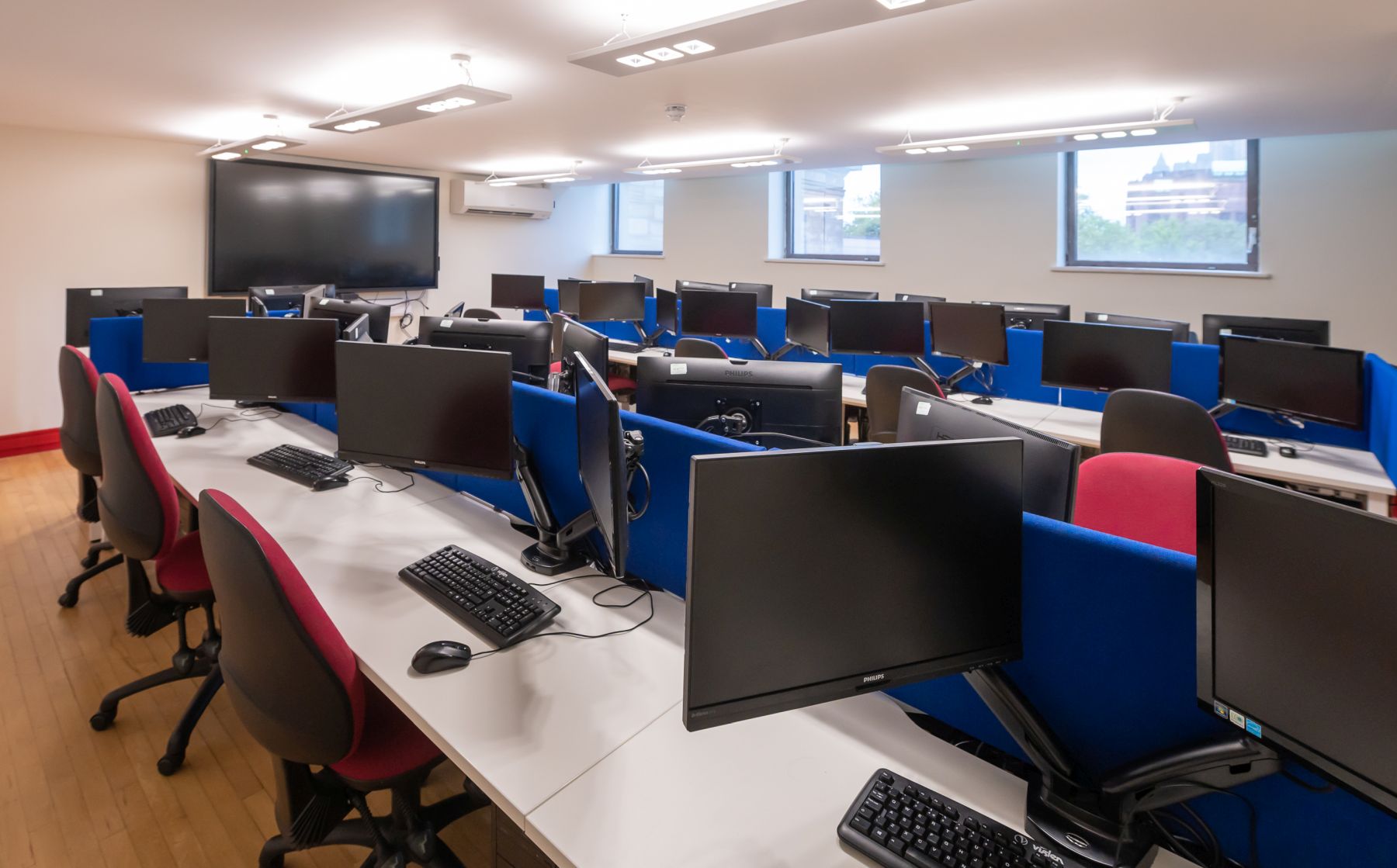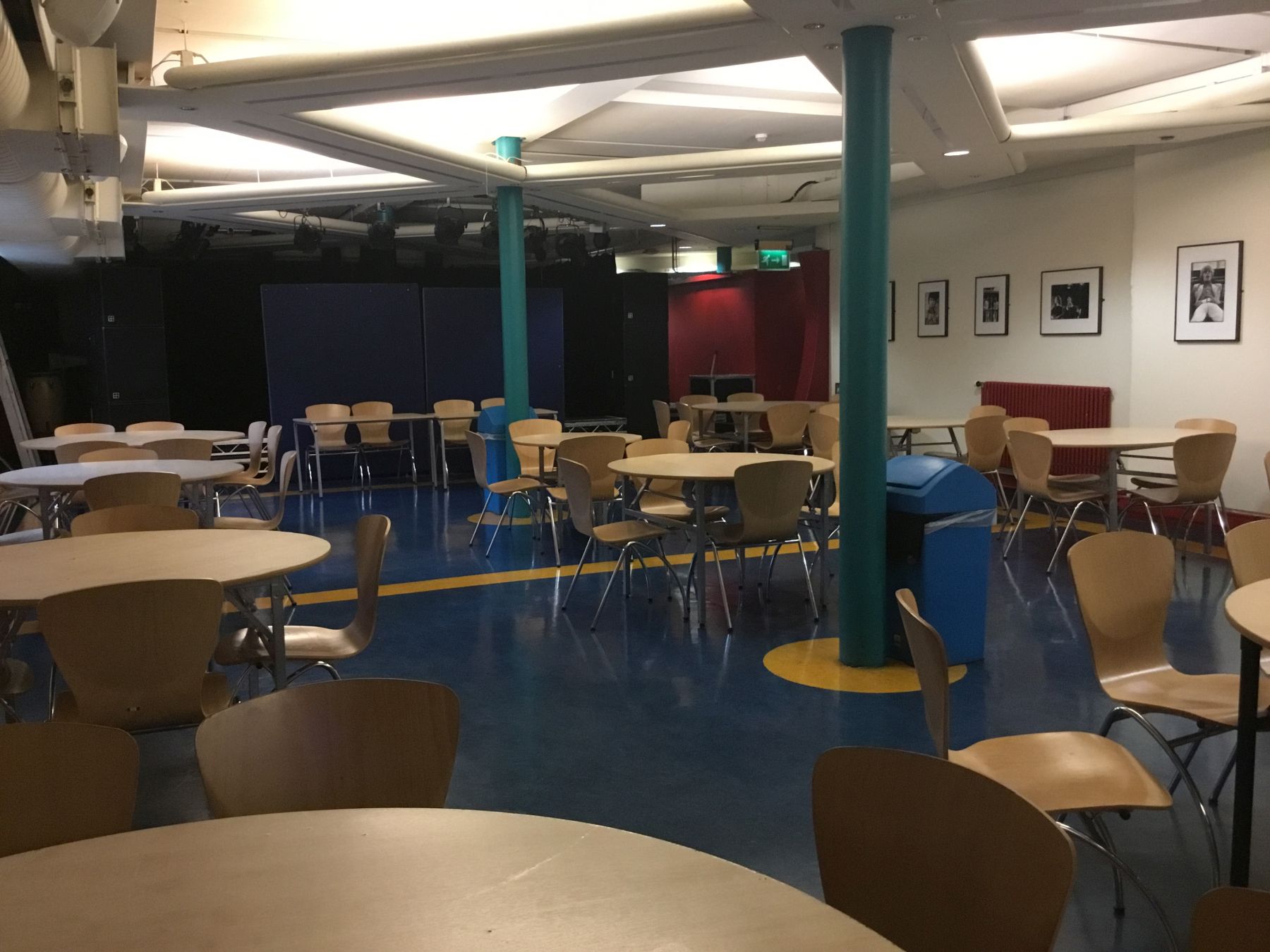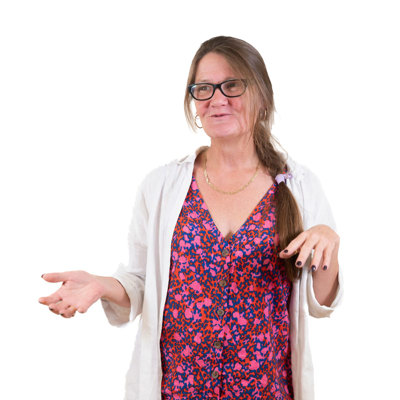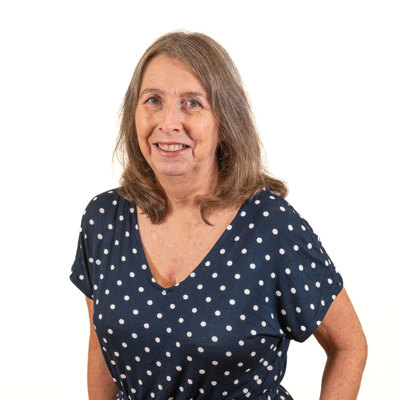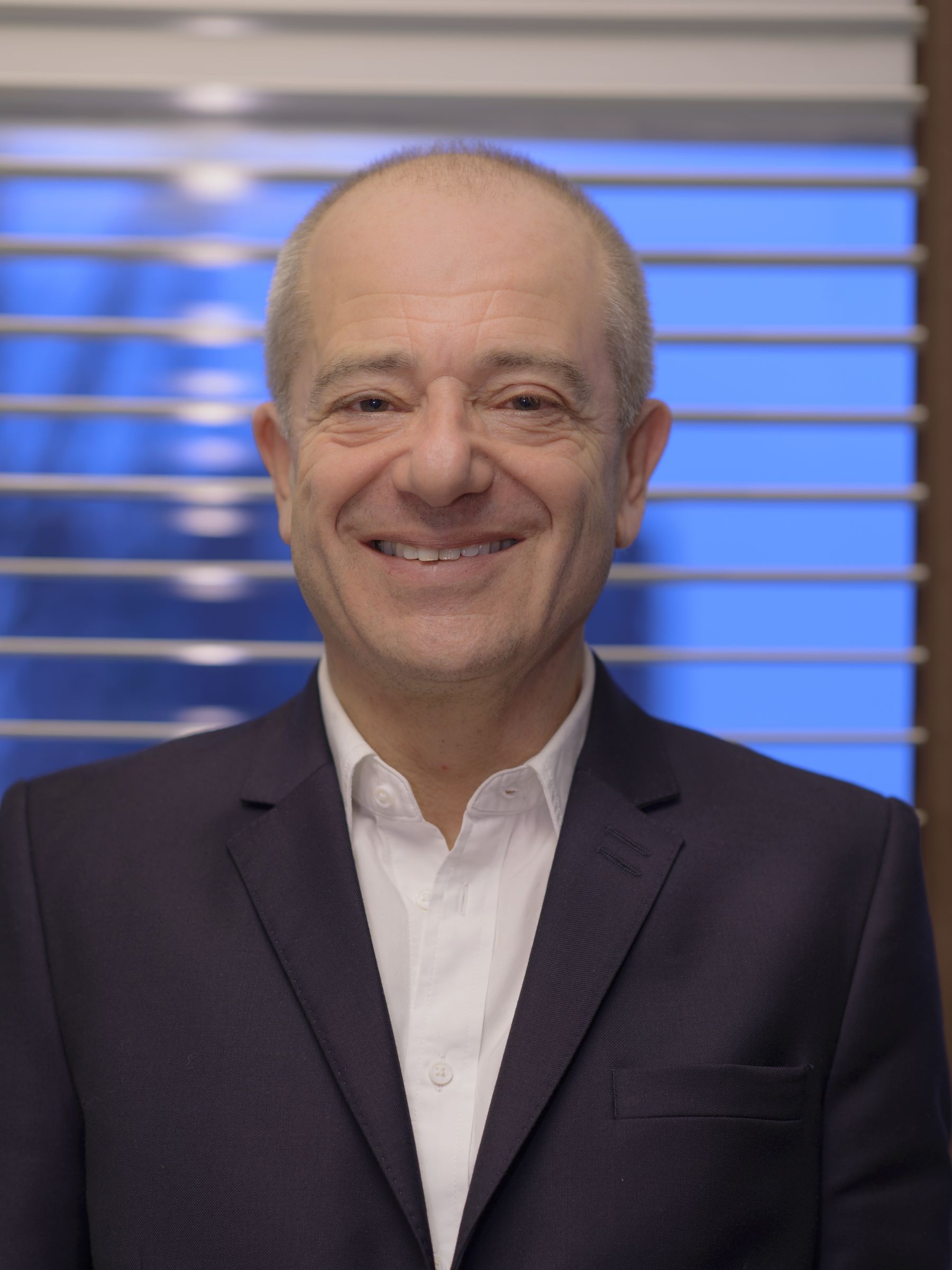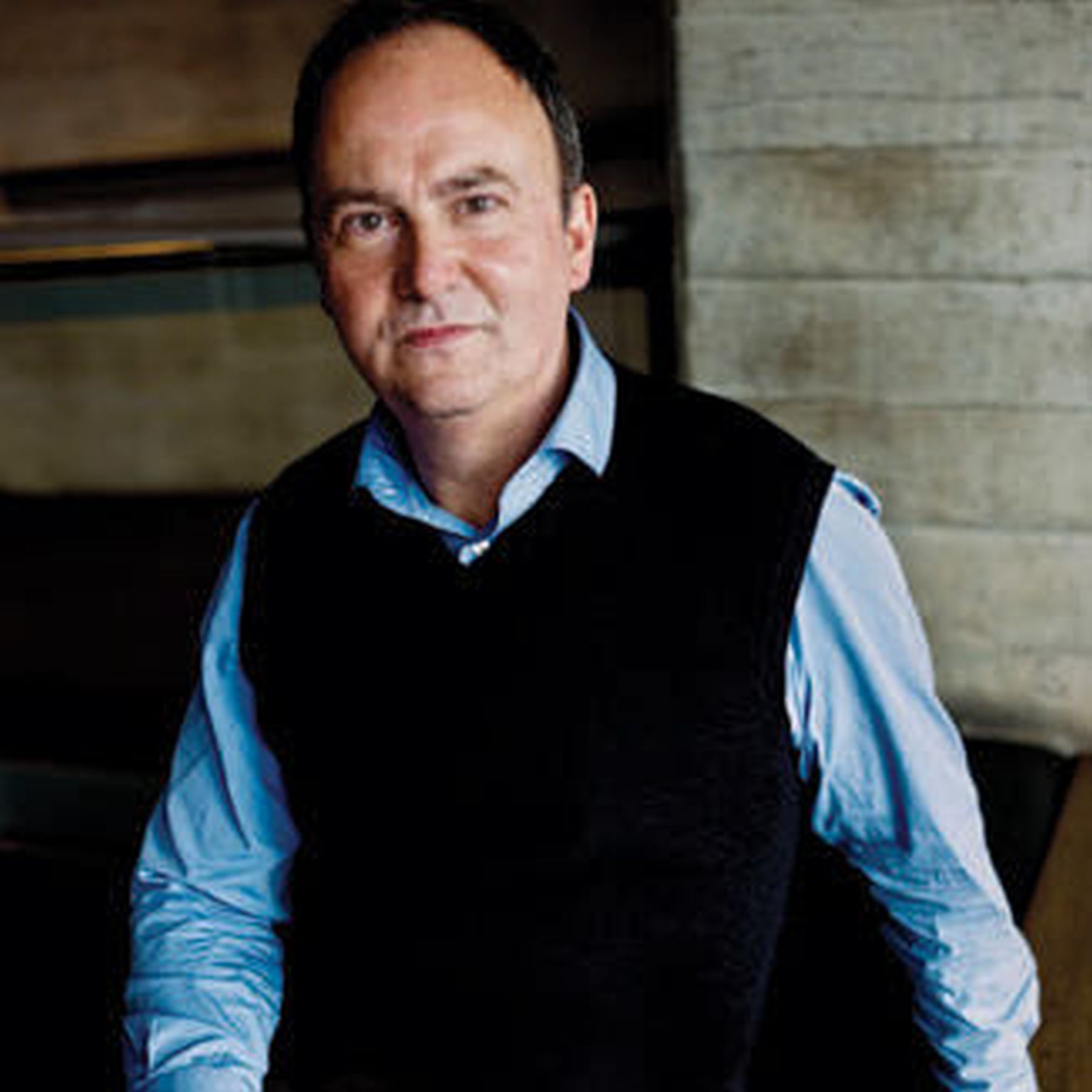Course
Overview
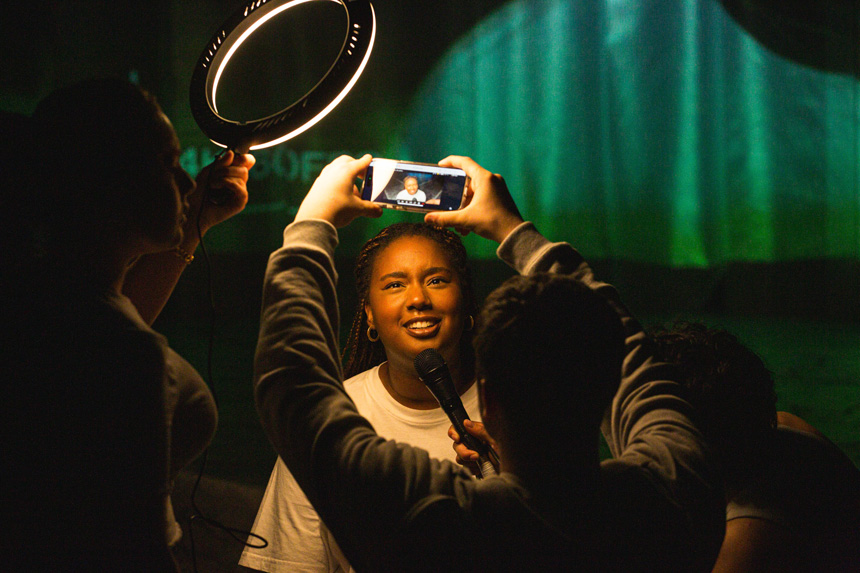
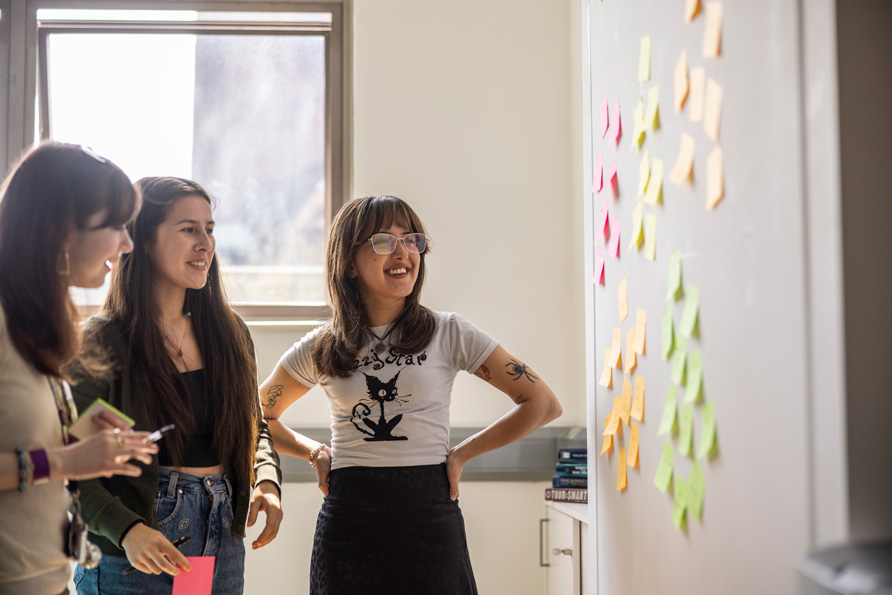
Our Management course gives you the skills, experience and contacts you need to build a sustained career as a manager in the music and performing arts industries.
Our course enables you to develop a deep understanding of management practice and theory, while working on a wide portfolio of creative projects giving you unparalleled professional experiences and opportunities. You will learn key transferable business and entrepreneurial skills, including artist management, events management, working with labels, theatre and screen. Moreover, you will take a deep dive into marketing, data analytics, managing live events, stakeholder engagement, creative leadership, contracting, copyright and Intellectual Property. These skills will enable you to graduate as a dynamic and inspirational manager who can work across the creative sector in a broad range of roles.
You will have the opportunity to tailor your learning through a choice of optional modules. Pursuing a broad Management pathway covering a range of sectors or specialising on one of our three pathways:
- Music Industry Management (Artist, Label, Publisher, Distribution)
- Live Events
- Theatre & Screen.
By training in a dynamic, international performing arts institute you will develop an expert familiarity with the music industry and performing arts. And through working alongside musicians, producers, filmmakers, actors, dancers, creative technicians, and fellow businesspeople, you will learn how to manage talent and work collaboratively with the teams who power projects and performances.
This course is still open to new applications for a September 2025 start, even though the UCAS deadline has passed.

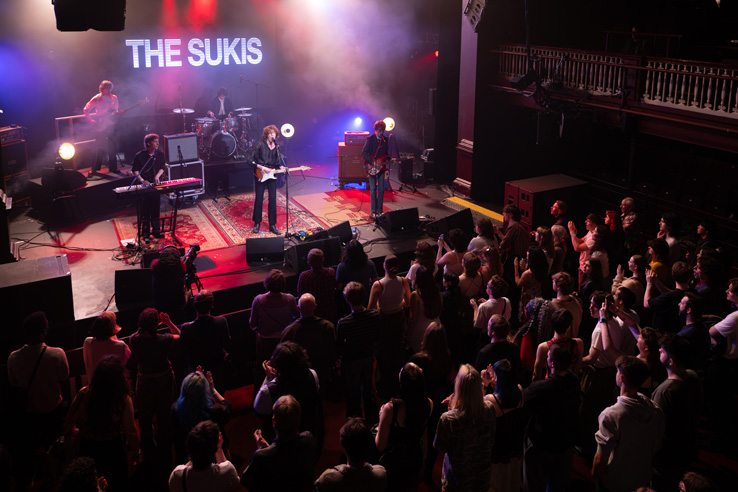
Course highlights
- Build your passion into a sustainable career by combining robust management training with opportunities to work on a range of creative projects.
- Collaborate with artists, performers and creative technicians to deliver exciting creative projects and performances, from developing your own management company, running two-week music festivals to dance extravaganzas and cutting-edge stage and screen shows.
- Engage deeply with the industry through working with visiting professionals and our core team of staff who have decades of experience working at the forefront of creative management.
- Undertake an industry placement to develop your career, or pioneer your own creative enterprise in your final year as a springboard to securing sustainable work once you graduate.
- Perform cutting edge analysis of the latest trends in Management and deliver your research at our annual conference showcasing how the music and performing arts industries are evolving.
- Seize opportunities outside the curriculum to expand your portfolio, with management students recently working on an award-winning Edinburgh Fringe musical, the Eurovision Song Contest, and the Cunard’s international ceremony to mark the naming of the Queen Anne.
What You Will
Study
Contracts, Copyright and Intellectual Property
In this module you develop an understanding of UK Copyright Law and Intellectual Property legislation so you can confidently engage with it. You are introduced to contracts and their primary purposes in the creative industries and performing arts and learn how to understand and analyse them.
Creating Content
In this module you develop an understanding of how secondary creative content is produced and used. You are mentored and guided in the use of creative digital skills so you can devise, produce, and deliver digital media assets that are focused on promotion, communication, or marketing.
Funding for the Creative Industries and Performing Arts
In this module you gain the knowledge and skills to identify funding and subsidy opportunities and understand the application processes. As part of your learning, you compile a portfolio that identifies funding sources for a project or production and includes a grant application, sponsorship proposal, crowdfunding plan and budgeting and cashflow details.
.
Critical Skills for Managers
In this module you become confident in the use of skills that are critical to your studies and future career. These include referencing, research, information analysis, presentation techniques and analytical objectivity.
The Contemporary Creative Industries
In this module you learn about the creative industries and performing arts’ key organisations, leading practitioners and executives. You develop the ability to analyse the sector and understand the impact of cultural policies.
Understanding Marketing for the Creative Industries and Performing Arts
In this module you study marketing theory and develop your understanding of concepts, tools and campaign planning. You examine case studies, looking at examples of marketing campaigns with a focus on reaching target markets and audiences. The skills learnt and tools used are adaptable to whichever career path you follow and a key preparation for your second-year studies.
Practical Creative Project
In this module you work in collaboration with other Management students and students from other disciplines to design, manage and deliver a practical creative industry or performing arts project. Supported by tutors throughout, it is an opportunity to put your new knowledge into action, experiment and learn. For example, the project could be a live performance or event, a digital performance or screening, an online immersive project or website development.
Audience Insights and Data Analytics for the Creative Industries and Performing Arts
This module introduces you to the research and marketing methods used by professional managers when designing and analysing marketing campaigns. You use a variety of online insight platforms, including industry standard analytics tools and dashboards. You understand how to use data as a strategic tool to maximise the effectiveness of digital marketing campaigns.
Business in the Creative Industries and Performing Arts
In this module you gain an understanding of business concepts that are relevant to small and medium sized enterprises (SME). There is a focus on establishing a start-up business, methods of financing, managing the legal requirements set by the UK government, and the important relationship between copyright legislation and the viability of SME organisations.
Strategic Marketing Techniques
In this module you build on your first-year marketing knowledge as you learn and apply the key steps involved in developing a strategic marketing plan. You learn how to set marketing goals, undertake a marketing audit, do market research and engage in analysis to inform the creation of your marketing plan. You are introduced to brand identity, messaging and communication, e-marketing, pricing strategy and PR practice for implementing the strategic marketing plan.
Personal and Professional Development for Managers
In this module you reflect on your ambitions and aspirations and then consider what personal and professional development is required to achieve them. You receive guidance and mentoring as you devise strategies to help you reach your goals, with targets to help you progress to graduation and beyond. Guest industry professionals lead seminars to increase your understanding of the sector as you plan for your third-year placement.
Practical Project
This module is an opportunity to apply your learning so far as you design, strategise, manage and deliver a practical creative industry or performing arts project. Building on the lessons learnt during the Practical Creative Project in your first year you take your practical work to the next level on a project that reflects your aspirations, interest and strengths.
Management for Live Events Pathway - Legal Safe and Sustainable Events and Projects (Option)
In your second year you can select two optional modules from one of three specialism pathways: Theatre and Screen, Music Industry Management or Management for Live Events. If you do not wish to specialise you simply select two optional modules.
This module equips you with the skills, competencies, and knowledge needed to effectively design and deliver well planned and appropriately resourced legal and safe events and projects.
Management for Live Events Pathway - Managing Live Events (Option)
In your second year you can select two optional modules from one of three specialism pathways: Theatre and Screen, Music Industry Management or Management for Live Events. If you do not wish to specialise you simply select two optional modules.
This module will equip you with the requisite skills, competencies, and knowledge to effectively plan and deliver events and projects that account for all stakeholder and audience needs. This includes communication, performance monitoring and evaluation, programming and crowd management.
Music Industry Management Pathway - Music Industry Management (Option)
In your second year you can select two optional modules from one of three specialism pathways: Theatre and Screen, Music Industry Management or Management for Live Events. If you do not wish to specialise you simply select two optional modules.
This module equips you with the knowledge, insight, and skills needed to analytically devise, design and deliver a coherent and constructive, music industry management project of your own choosing. For example, you may choose to co-ordinate and book a tour, plan a commercial release, originate a range of merchandise or plan a marketing campaign. The project enables you to develop your personal and professional resilience, planning techniques, research methods and decision-making skills.
Music Industry Management Pathway - Popular Music - Context and Culture (Option)
In your second year you can select two optional modules from one of three specialism pathways: Theatre and Screen, Music Industry Management or Management for Live Events. If you do not wish to specialise you simply select two optional modules.
In this Module you study Western popular music from both an aesthetic and cultural perspective. You advance your knowledge with an understanding of the developments, both cultural and technological, that have shaped and continue to shape the creation and consumption of mainstream popular music.
Theatre and Screen Pathway - Understanding Producing (Option)
In your second year you can select two optional modules from one of three specialism pathways: Theatre and Screen, Music Industry Management or Management for Live Events. If you do not wish to specialise you simply select two optional modules.
In this module you are introduced to the fundamental aspects of producing professional theatre and screen work. You are guided through the essential preparation and research work required as you put together a production plan portfolio for an original production. You work as part of a group or as an individual depending on your agreed production.
Theatre and Screen Pathway - Original Production (Option)
In your second year you can select two optional modules from one of three specialism pathways: Theatre and Screen, Music Industry Management or Management for Live Events. If you do not wish to specialise you simply select two optional modules.
In this module you apply your learning practically by devising, managing and producing an original theatrical or screen production. The type and content of the production is decided by you and the module leader and should reflect your aspirations, interests and strengths. A chance to experiment and learn, it could be, for example, a piece of theatrical drama, a short film, a dance performance or an immersive event. The production should be exciting to you, engaging to its audience and managed creatively and resiliently within a limited budget.
Placement Project (Option)
You have a choice between undertaking a Placement Project or an Enterprise Project.
The Placement Project is an extended work placement within an area of the performing arts and creative industries which reflects your career aspirations. During the three months you apply your skills and knowledge in a real-world professional environment as you gain invaluable experience to help you gain employment or self-employment. It is also an opportunity to highlight your capabilities and potential and has in the past regularly led to employment opportunities.
Enterprise Project (Option)
You have a choice between undertaking a Placement Project or an Enterprise Project. The Enterprise Project is an opportunity for you to spend three months developing and building a business or enterprise concept. This module has been used in the past by students to plan, develop, set up and trial business enterprises which have then become their primary employment following graduation.
Creative Industries Conference
In this module you research a specific topic of your choice regarding a contemporary management issue in the creative industries and performing arts that is related to your interest and aspirations and present that research at our annual Contemporary Issues in Management conference.
Research Project
In this module you carry out a research project, that enables you to gain a deeper understanding of, and engagement with, a contemporary issue from within the creative industries, performing arts and entertainment sector. You carry out primary and practical research in order to develop and deliver an academically robust research paper or project.
How You Will
Study
-
Masterclass
-
Group Work
-
Independent study
-
Workshops
-
Tutorials
-
Lectures
How You Will Be
Assessed
You will be assessed through practical, verbal, and written work, including such things as presentations, tutor observation of your practical work, essays, short reports and evaluations, open book tests, spoken ‘viva’ reports and in your final year, a research-based project, which can be either a traditional written dissertation, or a more ‘practice-based’ project. All of your assignment tasks are designed to be relevant to and reflective of the work and knowledge you may be expected to engage with as a professional within the Creative Industries and Performing Arts. During your time as a Management student at LIPA, you will devise, produce, manage, and deliver a range of projects and creative products, taking on an increasing amount of individual responsibility for your work as you progress through each year.
Practical/Academic work ratio
50% practical assignments / 50% academic assignments
Validation
LIPA aims to have probationary degree awarding powers from September 2025 (subject to Office for Students approval). This is an exciting step, allowing us to take full control of our curriculum and course portfolio. In the unlikely event LIPA does not achieve probationary degree awarding powers, our degrees will be validated by Liverpool John Moores University.

Jon Thornton
Director of School of Creative Technologies, Design and Enterprise
Jon started by helping out in studios, and studied the UK’s first BTec in Music Technology. While studying, he gained experience in TV audio before moving on to a post-production facility (sound to picture). Jon continued working there until he began lecturing. He regularly writes for Resolution, a leading audio magazine, which keeps him up to date with the latest equipment and thinking. Having worked in different areas of the audio industry, he is able to spot where skills and knowledge crossover, which informs his teaching. Jon believes that students need to learn by doing things, but also by understanding why they are doing them.

Keith Mullin
Head of Department: Management; Music Department: Subject Leader Professional Practice & Music Business
MA, PGDip, FHEA Course Leader
Keith is a member of Liverpool band The Farm and works as a freelance music professional. The band’s first album reached number one in the UK and they continue to perform at festivals and UK venues. He has also managed bands and artists, and co-owned independent labels Honey Records, Produce Records and recently Vile Entertainment. Keith was also a member of The Justice Collective achieving the 2012 Christmas number one with their recording of He Ain’t Heavy, He’s, My Brother, working with Guy Chambers, Sir Paul McCartney, Mick Jones from The Clash, Robbie Williams and former Spice Girl Mel C.
With over 30 years’ experience in the music industry, he has acquired a knowledge and experience of the industry’s management structures and common business practice which he passes on to his students. He uses a mixture of approaches and methods to ensure that learning feeds into career-focused development for musicians and artists.
With an MA in Music Industry Studies, and PGCert in higher education teaching, he has mentored and taught numerous musicians who have gone on to enjoy successful careers in the music industry as songwriters, managers, A&R managers, live music industry media and digital marketing professionals. He continues to maintain relationships with many professional entertainment companies, publishers, record labels, agents, managers, promoters. In addition, he has performed with numerous experienced artists such as, Mick Jones (The Clash), Paul Heaton, Suggs, David Bryn, Susan Vega, Fun Lovin Criminals, Happy Mondays, Take That, Eurasia, Clean Bandit, Madness, The Stone Roses, Beverly Knight, Lightening Seeds, BA Robinson, New Order, Peter Hook & The Light and many other high-profile artists. More recently he worked alongside Rob Sloman as associate producer, composer and music director for the documentary Howard’s Way, the documentary currently features on sky documentaries.
Keith teaches a broad range of subjects across the disciplines of music and management, music industry and business, professional practice, research skills, practical project, work, live music and events, performance techniques and coaching. Keith’s industry knowledge and experience permit a relevant contribution to teaching and learning across multiple disciplines.
Keith possesses an extensive portfolio of professional experience having worked in the music and creative industries for 32 years. Working as a successful artist/entrepreneur since 1989 to the present day, has assisted in acquiring a comprehensive knowledge of music industry conventions and contemporary business practices. Enabling the application of music industry insights and practices within educational settings. Professional experience in Keith’s view is “an integral part of preparing students for a profession, through linking theoretical studies to deliberate practice and their learning”
Publications
What is a good higher education teacher? "Am I what I say I am?" Published 2017-04-18 LJMU Innovations In Practice
Hillsborough Justice Tour 2012 - The John Robb Diary, Book, Chapter Contribution
Music releases
Albums
Spartacus (1991)
Love Sees No Colour (1992)
Hullabaloo (1994)
Pastures Old and New (1986)
Spartacus Live (1991)
Groovy Times (1991)
Best of The Farm (1998)
The Very Best of The Farm (2001) [compilation] Back Together Now! Live (2006) All Together with The Farm (2007) [live album] Singles.
Keith’s songs have featured on 90-compilation albums
Singles
Hearts and Minds (1984)
Steps of Emotion (1985)
Some People (1986)
Body and Soul (1989)
Stepping Stone / Family of Man, Groovy Train, All Together Now (1990)
Sinful! (Scary Jiggin' with Doctor Love) with Pete Wylie, Don't Let Me Down, Mind (1991)
Love See No Colour, Rising Sun, Don't You Want Me, Love See No Colour (re-mix) (1992)
Messiah, Comfort (1994)
All Together Now (Everton FA Cup Final version) (1995)
All Together Now 2004 (feat. SFX Boys Choir) (1994)

Liz Carlisle
Lecturer
Liz has worked in the arts and cultural industries in Liverpool since graduating as one of eight people with a BA Hons in Performing Arts with a specialisation in Arts Administration (at the time this undergraduate programme at Leicester Polytechnic was the only one in the UK that specialised in arts management). Having started her career booking and managing 40 tours per year for a local community theatre company she soon became the go-to arts manager in Liverpool, working with Merseyside Arts (the local office of Arts Council), Merseyside Dance Association (a forerunner of Merseyside Dance Initiative), Hope Street Ltd, The Centre for Arts Development Training, Kaboodle Theatre, Loudmouth Mime Theatre, Fun Promotions Theatre Company, Pegasus Puppet Theatre, The Association of Theatres on Merseyside and then becoming Administrative Director for Urban Strawberry Lunch (USL).
During her work with USL Liz helped the organisation transition from a partnership to becoming a Ltd Company and Charity status and secured annual funding from Arts Council England and Liverpool City Council, all whilst moving from a solely managerial role in to becoming a performer, composer, and workshop/education leader too; booking, managing and appearing in tours of Singapore, Malta, Cyprus, France, Belgium and Ireland as well as working across the UK in a variety of site specific and arts venues. Her work also included many TV and Radio appearances (live and recorded, including 2 for Blue Peter which resulted in being awarded a Silver Badge!) Her professional experience includes fundraising and financial management, client and stakeholder liaison and relationships, marketing, tour booking and management, business and operational planning, lighting operator, driver, marketing and PR, roadie, performer, composer and arranger, artistic direction and much more.
Whilst working with USL Liz was involved with the transformation of Liverpool’s Bombed Out Church from a no-go zone to an open air venue hosting an exhibition by Yoko Ono and performances from big name acts including The Kooks, (British) Sea Power, Clinic and John Head; leading her to develop venue management skills including Front of House, Health and Safety, Licensing, Programming and more. She was also involved with the opening of Capital of Culture 2008, appearing on the roof of St George’s Hall with Ringo Starr.
In 2014 Liz moved into the field of community development working with adults who were isolated for a variety of reasons, helping them to build an independent support organisation before moving to another role working with adults in crisis (housing or financial) and helping them build skills and competencies to prevent the cycle of crisis recurring. During this time Liz was also the Participation Coordinator for 20 Stories High theatre company and volunteered with some large-scale projects including Liverpool Lantern Company’s spring festival and the World Athletics and International Para Athletics Championships.
Liz has been teaching at LIPA since 2012, has a PG Cert in Teaching and Learning in Higher Education, and is a Fellow of the Higher Education Academy. As much of Liz’s professional work has taken place in unusual and ‘found’ spaces as well as in traditional theatre and community settings she brings her practical experience to the front and centre of her teaching, believing that developing an understanding of all aspects of producing and managing a performance or project helps create the most effective managers.
Liz teaches Live Events and Performance Management, Raising Funds and Managing Finance, and Music, Entertainment, Theatre and Events in the Contemporary World; as well as working as a supervising tutor across several other modules. She also leads on LIPA Enterprise – a scheme to award small grants to student and alumni enterprise projects undertaken outside their studies and post-graduation.

Pippa Lea
Lecturer
Pippa, MCIPR, has over 20 years’ experience in arts marketing in the areas of PR and audience development, visitor economy strategy, digital strategy and website development, stakeholder communications, ticketing and visitor experience. She has held press, PR, communications, marketing and audience development positions at the National Portrait Gallery, Foster + Partners Architects, Liverpool Everyman and Playhouse Theatres, Floral Pavilion Theatre and Conference Centre, FACT (Foundation for Art and Creative Technology) Liverpool and Llangollen International Musical Eisteddfod. In 2000, as part of the PR and Development team at the National Portrait Gallery, she led on stakeholder management for the royal opening of the new Ondaatje Wing. Following this she joined global architecture firm, Foster + Partners, in a press, PR and public engagement role. Key projects included: City Hall, Wembley Stadium, and 30 St Mary Axe (The Gherkin), and coordinating Architecture Week and Heritage Open Week events.
As PR and Communications Manager for Liverpool Everyman and Playhouse Theatres, Pippa created and implemented a two-year PR and communications strategy for the opening of the new Everyman Theatre. She also led the theatres’ press and PR campaigns for Liverpool’s Capital of Culture Year working in partnership with Liverpool City Council’s Culture Team. During this time, Pippa worked with actors including, Kim Cattrall, Pete Postlethwaite, Jonathan Pryce, Matthew Kelly, Leanne Best (LIPA graduate) and David Morrissey. She also managed campaigns for the Amnesty International Freedom of Expression Award-winning Unprotected and stage premieres of Ghost Stories and The Ladykillers. Pippa was also the website manager, overseeing two website redesigns.
At FACT Liverpool Pippa headed the Marketing and Communications Team where she led a full rebrand and new visual identity working with leading creative design agency, Praline. She also managed the creation of a new website to coincide with the organisation’s 15th birthday.
In 2019, Pippa undertook a deep-dive 18-month consultancy role as Marketing and Audience Development Director at Llangollen International Musical Eisteddfod funded by Welsh Government’s Major Events Unit. Remit and deliverables included: an audience development strategy with long-term strategic planning; upskilling and reviewing the marketing team; a marketing campaign strategy to nurture a daytime visitor market resulting in a 17% increase in overall visitors and a 20% increase in daytime visitors; introducing the Audience Finder segmentation add-on tool to the organisation and integrating it with the Box Office system (Spektrix) to introduce dynamic e-comms content and dynamic ticketing initiatives.
Pippa is also an Associate Freelance Consultant for Counterculture LLP who provide specialist professional services across strategy, finance, law, management, governance and capital projects throughout the UK and internationally.
She is a Member of the AMA (Arts Marketing Association), a Member of the CIPR (Chartered Institute of Public Relations) and Chair of St Helens Cultural Hubs NPO Advisory Board. She was previously Co-Chair of Wirral Visitor Economy Board, a LEP (Liverpool Enterprise Partnership) Visitor Economy Board Member, and on the Steering Group for the Wirral Council Visitor Economy Strategy.
Pippa is Level 4 Module Leader for Marketing, Managing Organisations, and Introduction to Professional Practice (IPP) within Theatre, Music, Entertainment and Events.
The Marketing module provides an understanding of marketing concepts and strategic marketing management whilst developing abilities to identify tools for creating marketing campaigns and measuring success.
Managing Organisations covers a range of theoretical management concepts relating to the management of organisations within the creative industries.
IPP introduces the basics of a variety of different creative and arts activities, laying the building blocks for the forthcoming years.
Our students appreciate the direct link between learning and professional application. Using personal case studies and recent professional experience across a range of industries and organisations, Pippa can provide a contemporary overview of roles within the creative industries and some of the up-to-date tools that are being used across a range of practices.
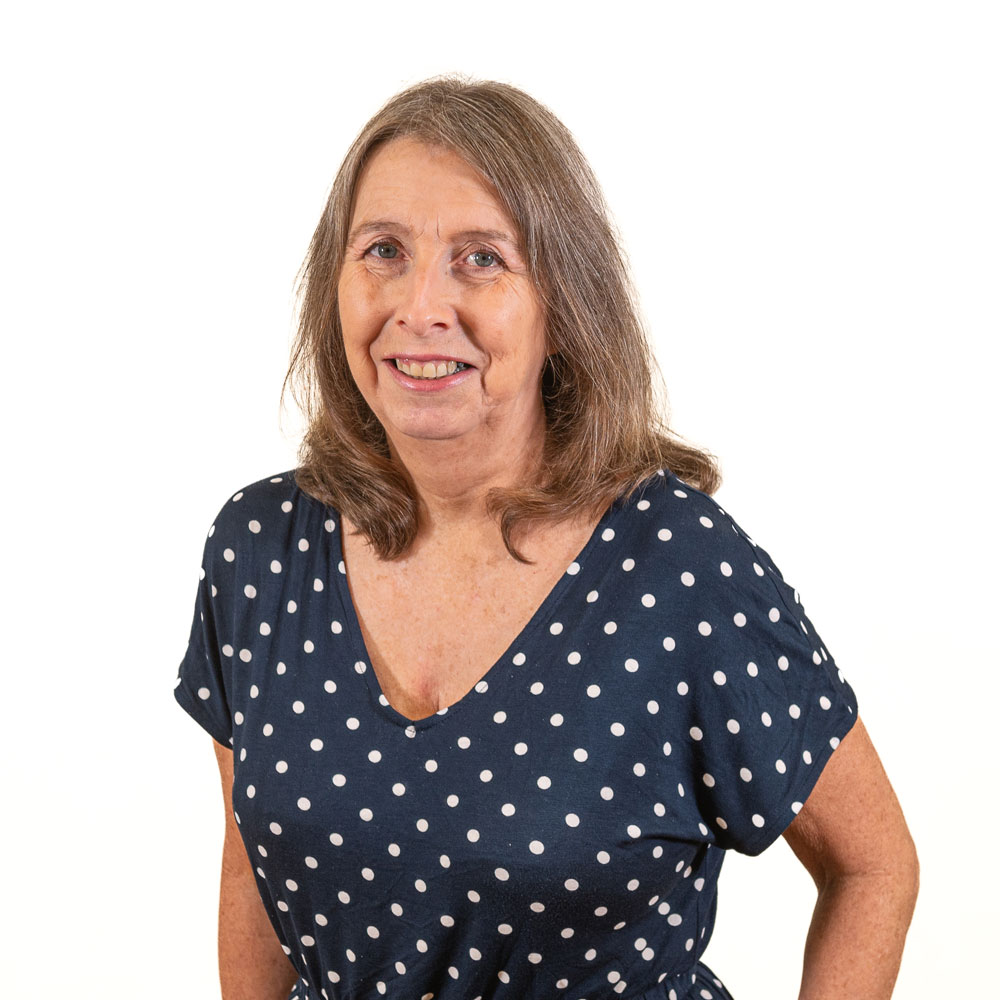
Gillian Walsh
Lecturer
Gillian has many years of experience working in regional theatre, where she held roles from venue management and project management to fundraising. She has served on various boards for independent theatre companies, arts organisations and charities. Gillian holds an MSc in Music and Creative Industries Management and a Postgraduate Diploma in Management Studies. She uses her extensive professional experience and theoretical knowledge to enable students to develop an in-depth understanding of the industry. From her time in the third sector, where she raised funds for arts and community projects, Gillian is able to support students with finding funds for their own real-life projects.
What Our
Graduates Do
LIPA graduates from this course work in the creative and performing arts industries in event
management, theatre production, organising arena tours, managing and representing music artists, marketing, publishing, promotion, video production and managing social media. Their career achievements have included:
Tabitha Hughes (2022)
Production assistant, Bolton Octagon Theatre.
Patrick Joseph (2022)
Marketing intern (paid), EMI Records.
George Pomford (2022)
Creative assistant, Sentric Music Publishing.
Emma Clarke (2021)
Talent and resource assistant, ITV.
Michaela Munden (2021)
Researcher, This Morning, ITV.
Paige Bithell (2019)
Business development representative at Soho Music.
Joshua Davies (2018)
TV marketing executive for Viacom CBS, with the focus on Channel 5 and its digital channels.
Liam McMullan (2017)
Theatre producer with GBL Productions.
Hannah Pearce (2017)
Visitor services manager at Birmingham Hippodrome.
Tom Hendrick Uebelgunn (2017)
Product manager for Universal Music, Germany.
Ashley True (2016)
Production supervisor at The O2 for AEG.
James Pyrah (2015)
Head of marketing & ticketing for The Warehouse Project and Parklife festival.
Max Emmerson (2015)
Producer, Leeds Playhouse.
Lauren Zawadzki (2014)
Co-founder of award-winning event company Deco Publique, which was crowned Lancashire’s Cultural Organisation of the Year in 2019.
Chris Meehan (2006)
Vice President of Royalty Management Services Sentric Music/Utopia
Vanessa Bakewell (2001)
Head of music, Facebook
Ed Millett (2001)
Co-founder of artist management company, Tap Music. Clients include Ellie Goulding and Lana Del Rey.
Educational qualifications are important but limited in what they can tell us about you.
Your natural ability, your fit with what and how we teach, your growth and your potential are also key factors in our admission process. We can’t evaluate these solely on your educational achievements, so no matter which course you are applying for, we look for the following attributes on your application and at the interview stage.
Additional Costs
As part of this course, there are likely to be some additional costs that are not included within your tuition fees. Many of these are optional. We’ve also included information about cost of living expenses in Liverpool in this section.
Books and equipment
There will be plenty of critical reading during the three years of the course but all of the key texts for the course can be found in our Learning Resources Centre (LRC). A couple of books though will be useful to you for the duration of your degree. Whilst it is not compulsory to buy these, we will send you some recommendations before you enrol for some things you might like to read before joining us.
The degree course will look at music, dance, theatre, events, radio, television and film and you may do projects from areas other than your main area of interest. It could, therefore, be useful to do some reading to brush up on any of your weaker areas out of music, theatre or broadcast entertainment management. Good newspapers all have arts sections which discuss what’s going on in the worlds of music, theatre and entertainment in an analytical and critical way but there are also several free journals you can subscribe to.
Field trip
On occasion you may be required to pay for incidental costs, for instance travel to a local venue for a field visit. These though are kept to a minimum.
Placement
In your third year, you will undertake a three-month placement. Depending on where you choose to locate, associated living costs can be high and you would need to plan for these.
Cost of living
Wherever you choose to study, you'll have to budget for accommodation and other everyday living expenses, such as food and bills.
Accommodation costs are relatively low in Liverpool, particularly compared to the south east of England, and the city's shops and entertainment venues also have lots of student discounts.
We’d recommend completing a simple budget plan to predict your income and outgoings. This should include accommodation, bills, insurance, TV licence, food, laundry, clothes, books, travel and socialising. How much you'll want to spend on a lot of these is completely personal.
There is lots of advice available online about budgeting:
- UCAS budget calculator is a great tool to help you balance your in-comings and out-goings.
- SaveTheStudent provides useful information on student money resources, including loans, budgeting, and scholarship sources.
Most UK students will be able to take out a maintenance loan to assist with living costs and there are some grants available. We also offer some bursaries. To find out more, please see Student Finance and bursaries.
Because our courses are intensive and we have a busy season of student performances, options for part-time work during our teaching periods can be limited. However, many of our students gain flexible part-time work, in performance venues, shops, restaurants and bars. We also provide casual work opportunities for our students ranging from stewarding work on our productions to working with young people to help us widen access to our courses. The long summer break is when many of our students choose to work.
Additional Costs
As part of this course, there are likely to be some additional costs that are not included within your tuition fees. Many of these are optional. We’ve also included information about cost of living expenses in Liverpool in this section.
Books and equipment
There will be plenty of critical reading during the three years of the course but all of the key texts for the course can be found in our Learning Resources Centre (LRC). A couple of books though will be useful to you for the duration of your degree. Whilst it is not compulsory to buy these, we will send you some recommendations before you enrol for some things you might like to read before joining us.
The degree course will look at music, dance, theatre, events, radio, television and film and you may do projects from areas other than your main area of interest. It could, therefore, be useful to do some reading to brush up on any of your weaker areas out of music, theatre or broadcast entertainment management. Good newspapers all have arts sections which discuss what’s going on in the worlds of music, theatre and entertainment in an analytical and critical way but there are also several free journals you can subscribe to.
Field trip
On occasion you may be required to pay for incidental costs, for instance travel to a local venue for a field visit. These though are kept to a minimum.
Placement
In your third year, you will undertake a three-month placement. Depending on where you choose to locate, associated living costs can be high and you would need to plan for these.
Cost of living
Wherever you choose to study, you'll have to budget for accommodation and other everyday living expenses, such as food and bills.
Accommodation costs are relatively low in Liverpool, particularly compared to the south east of England, and the city's shops and entertainment venues also have lots of student discounts.
We’d recommend completing a simple budget plan to predict your income and outgoings. This should include accommodation, bills, insurance, TV licence, food, laundry, clothes, books, travel and socialising. How much you'll want to spend on a lot of these is completely personal.
There is lots of advice available online about budgeting:
- UCAS budget calculator is a great tool to help you balance your in-comings and out-goings.
- SaveTheStudent provides useful information on student money resources, including loans, budgeting, and scholarship sources.
Most UK students will be able to take out a maintenance loan to assist with living costs and there are some grants available. We also offer some bursaries. To find out more, please see Student Finance and bursaries.
Because our courses are intensive and we have a busy season of student performances, options for part-time work during our teaching periods can be limited. However, many of our students gain flexible part-time work, in performance venues, shops, restaurants and bars. We also provide casual work opportunities for our students ranging from stewarding work on our productions to working with young people to help us widen access to our courses. The long summer break is when many of our students choose to work.
Additional International student costs
UKVI English language requirements
If you are not from a majority English speaking country (as determined by UKVI), you will be required to establish to LIPA that you meet UVKI minimum standards for English language before getting a Confirmation of Acceptance for Studies (CAS) number. The CAS number we issue you allows you to begin the visa application process. There is no requirement for a student to evidence their English language qualification at the point of application, audition or interview.
Students who accept a place on Certificate of HE Foundation Acting (Musical Theatre) or Certificate of HE Foundation Acting (Stage & Screen) must sit a UKVI-approved Secure English Language Test (SELT). The cost of a SELT can range from approximately £180 - £250. You may also incur travel costs to your closest test centre.
Students who accept a place on an undergraduate or postgraduate course may have the opportunity to evidence their English language through a qualification from another country which meets LIPA’s assessment of its academic suitability, take a UKVI-approved Secure English Language Test (SELT), or completing and passing a LIPA Institutional Assessment of English. The cost of a SELT can range from approximately £180 - £250. You may also incur travel costs to your closest test centre. A LIPA Institutional Assessment of English is free of charge.
Student visa
All international students who do not hold a United Kingdom of Great Britain and Northern Ireland passport; a Republic of Ireland passport; or EU Settled Status (EUSS), will require a Student visa to study in the UK.
The Student visa application fee in 2025 was £490. Some students will need to have their biometrics taken as part of the visa application process and this may incur additional costs, notably travel costs to your nearest Visa Application Centre.
In addition to the application fee, you are required to pay the Immigration Health Surcharge, which gives you access to the UK’s National Health Service (NHS). Once your course starts, any medical treatment you require in the UK will be free of any further charges if you use the NHS, just as it is for UK nationals. The surcharge is compulsory, even if you hold private healthcare insurance. 2025 surcharge costs were as follows:
- Foundation and Certificate of HE programmes: £776
- Undergraduate (BA) programmes: £2,716
- Postgraduate (MA) programmes: £1,164
The surcharge will give access to NHS healthcare services from your arrival in the UK until the date your visa expires.
Accommodation
Some accommodation providers may require international students to pay a larger deposit, or pay for their accommodation in fewer, larger instalments. This is something individual students will need to discuss with their accommodation provider.
View the programme specification on the LJMU course catalogue here






